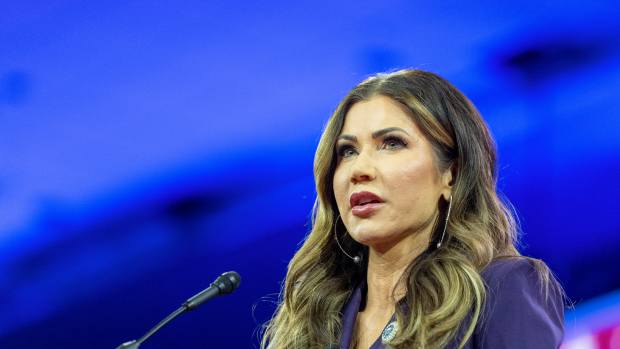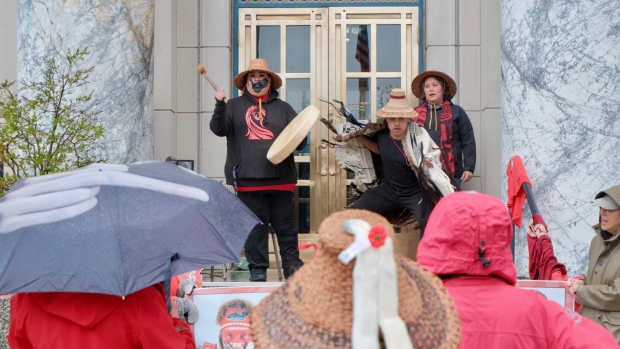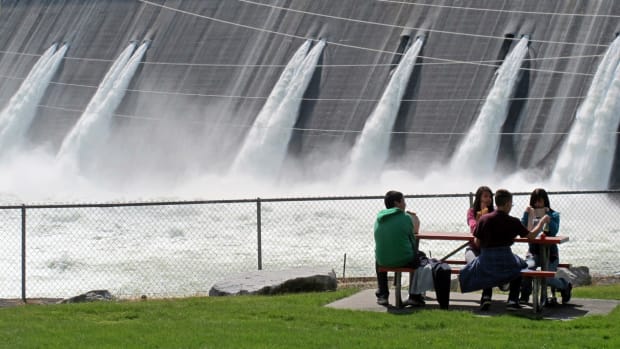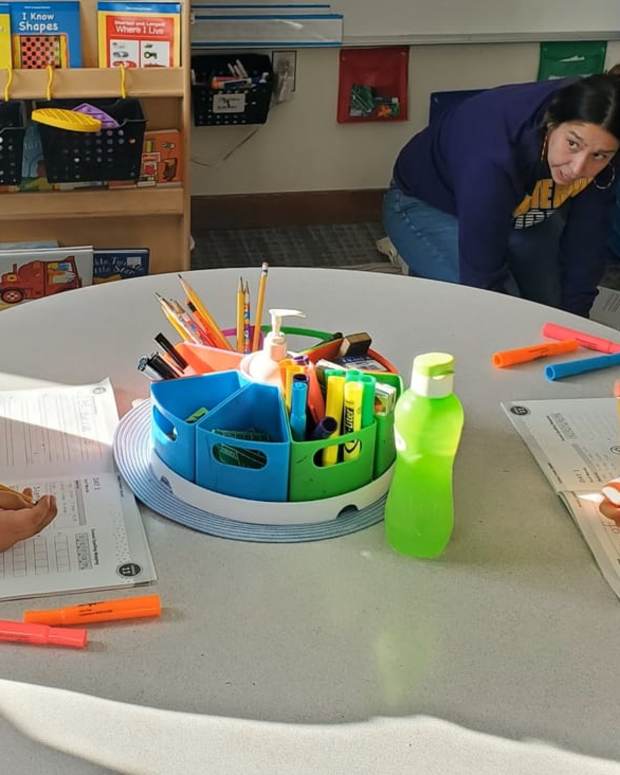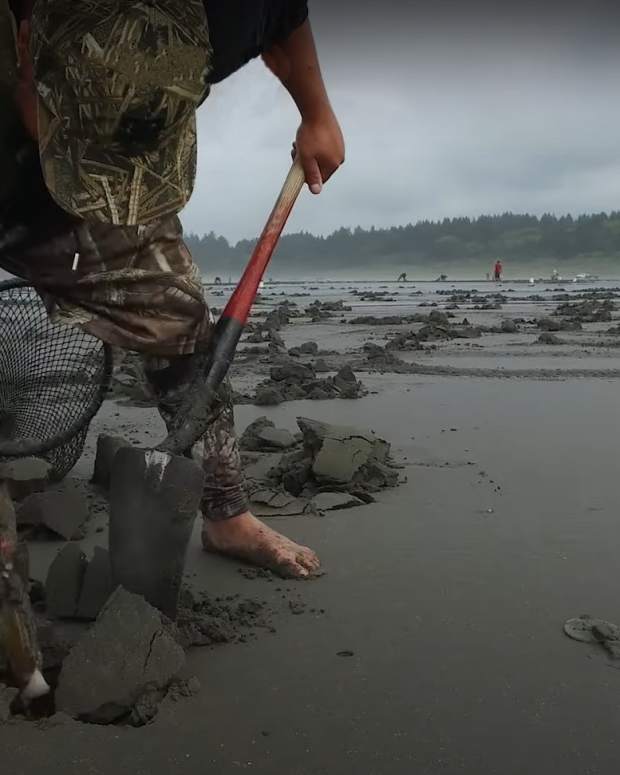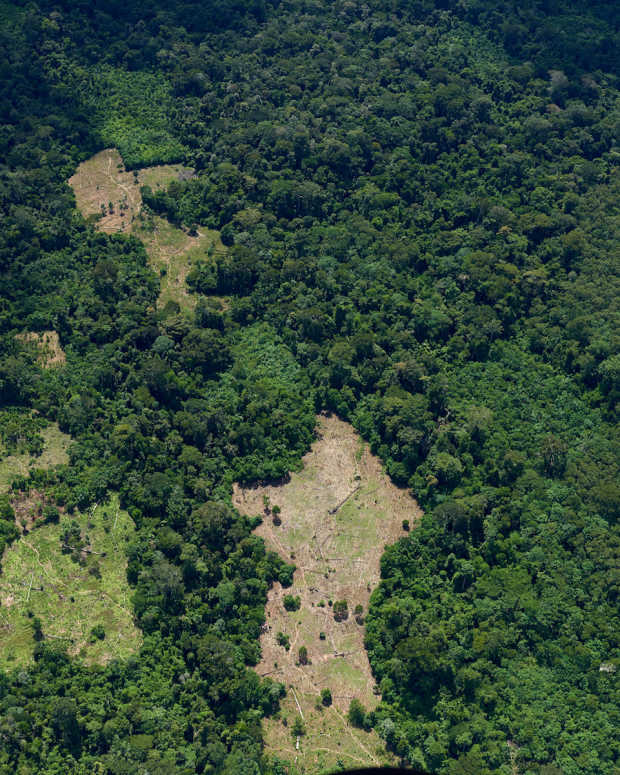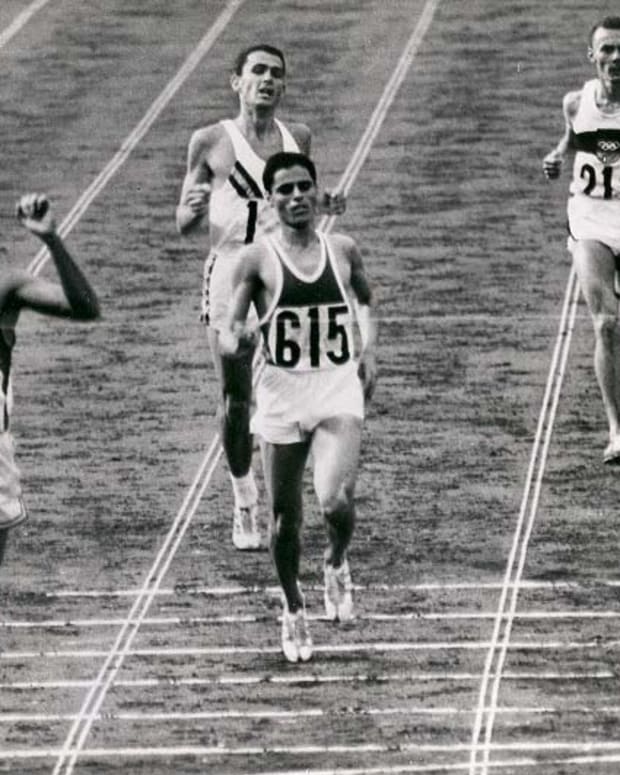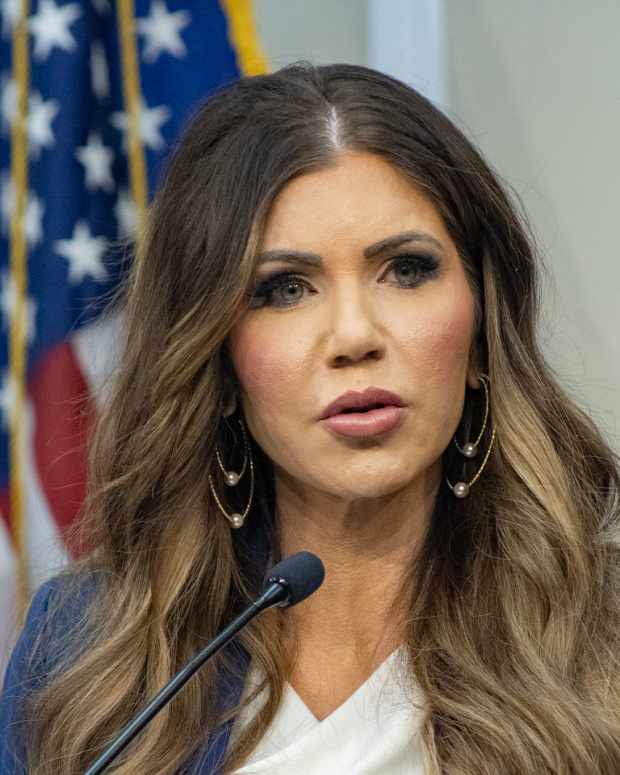A Conversation With Eric Schweig, Star of APTN's Blackstone
Of Inuit and German descent, Eric Schweig is the star player of the Aboriginal People’s Television Network’s Gemini award-winning series Blackstone, which premieres Wednesday, January 11th. Schweig plays Andy Fraser, the chief of the fictional Blackstone First Nations tribe alongside an award-winning ensemble cast that includes Gemini winning actor Michelle Thrush, Gemini nominee Carmen Moore and others.
Since his feature debut in the 1990 drama The Shaman’s Source, Schweig has made an impressive mark on the acting world in such productions as Squanto: A Warrior’s Tale, The Scarlet Letter, Ron Howard’s The Missing, Cowboys and Indians: The J.J. Harper Story, Indian Summer: The Oka Crisis, Cashing In, Casino Jack, and the Emmy-winning Bury My Heart at Wounded Knee.
In an interview with ICTMN, Schweig discussed life experiences that have helped him to play his role in Blackstone, his belief in giving back to the community, and how he has obtained such success in his career.
Tell us about Andy Fraser, the character you're playing.
They sort of fashioned him after Tony Soprano, I think. He is corrupt and if he can't get what he wants done one way, he'll get it done another. He will muscle people or threaten them, he is duplicitous and two-faced when he has to be. Of course then he will do something that is sweet and redeeming. Some people don't know whether to love him or hate him. And that works to create a well-rounded villain. That's how it has to be; even Freddy Krueger was the bastard son of 1000 maniacs. You have to have some sort of sympathy or empathy for villains like otherwise. That's Andy Fraser.
Do you enjoy playing a villain of sorts?
Yeah, ask any actor and they will tell you one of the most fun things to do is to make a departure from yourself and play a villain. It is fun because you can do morally reprehensible shit and get away with it.
Do you really feel as though you're making a departure from yourself?
Yeah, you know, I am a good guy. I am an outreach worker in real life. I am a resource assistant for youth, I work in the street. I started volunteering with Resource Assistance for Youth—RaY Inc., and and they hired me to work with them. I now work with homeless people in Winnipeg, Manitoba—we feed them and clothe them. I work with sex trade workers and I try to hook them up with agencies that can help them. I don't just talk about it, I do it. I was homeless when I was a kid. I walked the streets with holes in my shoes and I stood in line at soup kitchens. I lived in hostels and I was an alcoholic until 14 years ago. I never met my biological mother. I was adopted at six months of age. My mother died of alcoholism and she was homeless as well. I also am an adult survivor of abuse by my adoptive parents.
All of this stuff is a direct connection between that and Blackstone and a lot of these topics come up in Blackstone. All of this helps a lot in my performance. Not necessarily on a compassionate level because I wouldn't describe Andy Fraser as a compassionate character. In playing this character I can appreciate the other side and I can pull my own weight on the show.
Read More
What is it like working with Blackstone's all-star cast?
I've been doing this for 25 years now. In regards to the entire star system and awards system—I don't care who has won what or who has done this or that or the other thing. I am just concerned that whoever is doing it is pulling their weight. I've never told anyone I am a Marlon Brando or whoever. All I expect from anybody—and this is what I like about Blackstone—is that people on the show can do their job. That's what I love about it. It is hard to do this if someone is not interested in it—mind, body and soul. Fortunately, we have the type of material that forces you to be into it and serious, otherwise you would just come across as phony. I love working with everyone on it.
What sort of career advice do you have for kids interested in acting?
I try to say this to kids: It has to do with that fear of success. If you don't love what you're doing then don't do it. In the past, a hundred years ago, we would watch our toddlers, and what they had predisposition for doing. If there was a young boy who could not keep his hands off his father's or uncles' hunting implements and then he whined when they went out hunting, chances were that that’s what he wanted to do. If you cultivate that, when he is 30 years old he would be the best possible asset for his community. I encourage kids to do this now.
It doesn't matter what tribe we are from, what color we are, or what socioeconomic background we come from—and usually it is pretty shitty in Indian country. This may be bad energy but it is energy nonetheless and that is power.
Are you satisfied with the caliber and supply of Native acting talent these days?
All kids want to do now is rap, which is great and I understand when you turn 15 or 16 you want to express yourself. But we are running out of actors and we need new blood. I'm getting sick of looking at the same usual suspects all the time.
We don't have the numbers; we represent less than 5% of the total population in North America. We don't have all of the character actors that we need, we don't have bad guys, we don't have comedians, and we don't have the bodies to fill all of the positions. I keep trying to get people to get into acting so we have someone who can focus on just being a funny guy or a bad guy or a psycho or a love interest.
Why do you think Blackstone is so popular?
It's jacked up obviously for television so the story is more interesting. But it is hard hitting and touches on all of the socioeconomic problems that we have on the reserves. It is up front and it is brutally honest. People either love it or they hate it and that's what you want.
I just wish this had a bit more exposure down in the States. People in New Zealand are getting this program but people in Seattle can't watch it. We need to come together as a global indigenous community.
